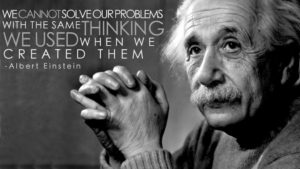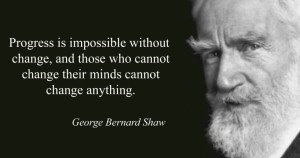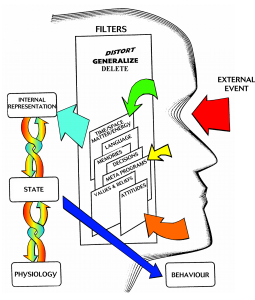27 March 2017
by Jevon
in ASE Articles
Comments Off on Bouncing back from burnout
 Burnout (mental, emotional, physical and spiritual fatigue) is generally considered to be caused by too much stress over an extended period where one looses hope in achieving a desired goal (Shirom, 1989).
Burnout (mental, emotional, physical and spiritual fatigue) is generally considered to be caused by too much stress over an extended period where one looses hope in achieving a desired goal (Shirom, 1989).
The symptoms of burnout spill over into other areas of the affected person’s life affecting their performance, motivation, personal relationships and social life, and can lead to depression, anxiety and psychosomatic disorders, as well as destructive behaviours toward self and others Continue Reading
24 March 2017
by Jevon
in ASE Articles
Comments Off on Mindfulness, Bodyfulness and Open Awareness
 Mindfulness, bodyfulness and open awareness are 3 sides of the same coin. This article describes their commonalities and differences, as well as their applications in terms of personal growth and transpersonal development.
Mindfulness, bodyfulness and open awareness are 3 sides of the same coin. This article describes their commonalities and differences, as well as their applications in terms of personal growth and transpersonal development.
As new sicknesses arise and the world’s problems proliferate, it’s clear that new solutions are needed. Many of the significant problems the world faces today, whether personally,- environmentally,- socially,- economically,- and others are issues that stem (at least in part) from a lack of awareness of our multidimensional interrelatedness in the vast web of life. According to Albert Einstein Continue Reading
23 March 2017
by Jevon
in ASE Articles
Comments Off on Transformation in Transpersonal Coaching
 We cannot solve our problems with the same thinking we used when we created them.
We cannot solve our problems with the same thinking we used when we created them.
Albert Einstein
This article outlines how transformation occurs in transpersonal coaching – a specialised form of psychological coaching that involves a dialogical relationship between a coach and client with the intention to resolve issues in the client’s life, by engaging in processes that serve to transcend the client’s self constructs and limiting beliefs.
Consciousness researchers interviewed by National Geographic in 2009 provided compelling evidence in support of what wisdom traditions across cultures have claimed for ages: that certain transpersonal states of consciousness can have healing, transformative and heuristic value Continue Reading
 Let’s be honest, 2016 had its ups and its downs!
Let’s be honest, 2016 had its ups and its downs!
By seeing life as a journey with a destination to be reached, we may find ourselves constantly climbing up from the downs and slipping down from the ups… year after year…
Is life meant to be a journey?
What if life was more like a dance?
By seeing life as dance, Continue Reading
17 October 2016
by Jevon
in ASE Articles
Comments Off on Change Management with NLP and The Kotter Model
 Methods for creating and coping with changes in our personal lives and in organisations.
Methods for creating and coping with changes in our personal lives and in organisations.
.
This article compares a NLP (Neuro-Linguistic Programming) change management approach with The Kotter Change Model and outlines how these two approaches can be combined in order to compliment each other.
.
In this intensified climate of change, people, businesses and organizations are forced to either become comfortable with change or to suffer the consequences of the stress that change brings. Therefore, Continue Reading
 Dissolve stressful thoughts and enhance mental performance with one simple skill – opening the aperture of your awareness.
Dissolve stressful thoughts and enhance mental performance with one simple skill – opening the aperture of your awareness.
.
Written by Jevon Dängeli
We cannot solve our problems with the same thinking we used when we created them.
– Albert Einstein –
(Free Open Awareness audio and video resources below)
A majority of my clients (in coaching and therapy) have suffered from the symptoms of stress, anxiety and burnout. In listening to how most of these clients have described their personal issues in their most challenging contexts, I consistently detected a particular pattern that was almost always present. After a careful and long-term assessment, I established that this pattern played a crucial role in how these individuals were being negatively affected. The discovery was that this pattern involved a particular way in which these individuals focused on their situations or how they were focusing on a specific object of reference in the challenging context. This focus was always narrowly fixated, thus these individuals were usually unaware of what else was possible or achievable in those situations or contexts. Even if they were aware of other possibilities, their locked in ways of approaching the situation prevented them from establishing more resourceful perceptions and responses. In one sense, their problems remained problems largely because of tunnel awareness. Continue Reading
Be free of panic attacks and performance anxiety with this simple 2-step technique…
.
 STEP 1: Open the aperture of your awareness
STEP 1: Open the aperture of your awareness.
This means broadening your current perspective in order to see the bigger picture and experience an expanded sense of self.
.
For panic attacks or performance anxiety to occur, you need to keep your attention on something that causes you to have the unwanted thoughts and feelings. In such cases attention is fixated (tunnel awareness) either on the undesired aspect of the situation that’s unfolding, or the negative self talk that’s running in our mind, or both. In both scenarios, the skill of
open awareness immediately inhibits the body’s stress mode (fight or flight) and calms the mind.
.
Peripheral awareness is one the
Authentic Self Empowerment skills. The optimal version of this skill to deal with both panic attacks and performance anxiety is the one that listeners are guided through in
this audio recording. Once you have listened to the recording a few times and practiced it by yourself at least once per day for a week, then you will begin to find that you can drop into the state of peripheral awareness quite swiftly and effortlessly. The more you practice it, the more it becomes your natural reflex in challenging situations (which is when you need it most).
.
 STEP 2: Roll out the red carpet
STEP 2: Roll out the red carpet Continue Reading

In the following three part article I will introduce three types of mindful communication and one key factor inherent in each of them.
‘Mindless‘ communication plays a crucial role in our personal problems, interpersonal conflicts and global crises. On the other hand, ‘mindful‘ communication is effective at cultivating understanding, rapport, trust and responsiveness – which are valuable attributes in any relationship, business, leadership and negotiation, as well as in wholesome parenting, teaching, training, mentoring, coaching and counselling.
Mindful Communication means listening and speaking with compassion and kindness while holding a specific type of awareness. The means to achieve this and the value of that ‘special’ awareness are outlined within the descriptions of the three types of mindful communication in the links below —
- Mindful Communication type 1 – Intrapersonal (interacting with self).
.
- Mindful Communication type 2 – Interpersonal (interacting with others).
.
- Mindful Communication type 3 – Transpersonal (interacting with subtle realms)
 Does that monkey in your mind run away with your thoughts?
Does that monkey in your mind run away with your thoughts?
You’re not alone! We all have that ‘mindless monkey business’ going on in our heads. If you feed it, it will stick around, if you do what I explain below, that monkey will pack its bags and go.
If you’re like most of us, you’ve probably noticed that as you go through life, your mind often engages in a continual stream of internal chatter, known as self-talk. It’s like having an internal narrator commenting on all your thoughts. There’s nothing inherently wrong with this, especially when your self-talk is positive and supportive. Other times though, like when you’re under stress, your self-talk just adds fuel to the fire.
Have you ever talked to yourself and made yourself feel worse than you were already feeling?
Do runaway thoughts keep you awake at night?
This is the type of self-talk you probably want to eliminate.
Here’s how…
Continue Reading
 The only way other people, including our family and friends exist for us is through our perceptions. Our perceptions determine our motivations and behaviours. Our behaviour influences the behaviour of those with whom we interact, which in turn influences our perception about them. And so the cycle goes… In other words, the way in which people behave validates our perception of them and so we always get to be right in our opinion about them. On this basis then, our perceptions become self-fulfilling prophecies that keep recycling in our life. Continue Reading
The only way other people, including our family and friends exist for us is through our perceptions. Our perceptions determine our motivations and behaviours. Our behaviour influences the behaviour of those with whom we interact, which in turn influences our perception about them. And so the cycle goes… In other words, the way in which people behave validates our perception of them and so we always get to be right in our opinion about them. On this basis then, our perceptions become self-fulfilling prophecies that keep recycling in our life. Continue Reading
 Burnout (mental, emotional, physical and spiritual fatigue) is generally considered to be caused by too much stress over an extended period where one looses hope in achieving a desired goal (Shirom, 1989).
Burnout (mental, emotional, physical and spiritual fatigue) is generally considered to be caused by too much stress over an extended period where one looses hope in achieving a desired goal (Shirom, 1989).
 Mindfulness, bodyfulness and open awareness are 3 sides of the same coin. This article describes their commonalities and differences, as well as their applications in terms of personal growth and transpersonal development.
Mindfulness, bodyfulness and open awareness are 3 sides of the same coin. This article describes their commonalities and differences, as well as their applications in terms of personal growth and transpersonal development. We cannot solve our problems with the same thinking we used when we created them.
We cannot solve our problems with the same thinking we used when we created them.
 Methods for creating and coping with changes in our personal lives and in organisations.
Methods for creating and coping with changes in our personal lives and in organisations.

 STEP 1: Open the aperture of your awareness
STEP 1: Open the aperture of your awareness STEP 2: Roll out the red carpet
STEP 2: Roll out the red carpet


